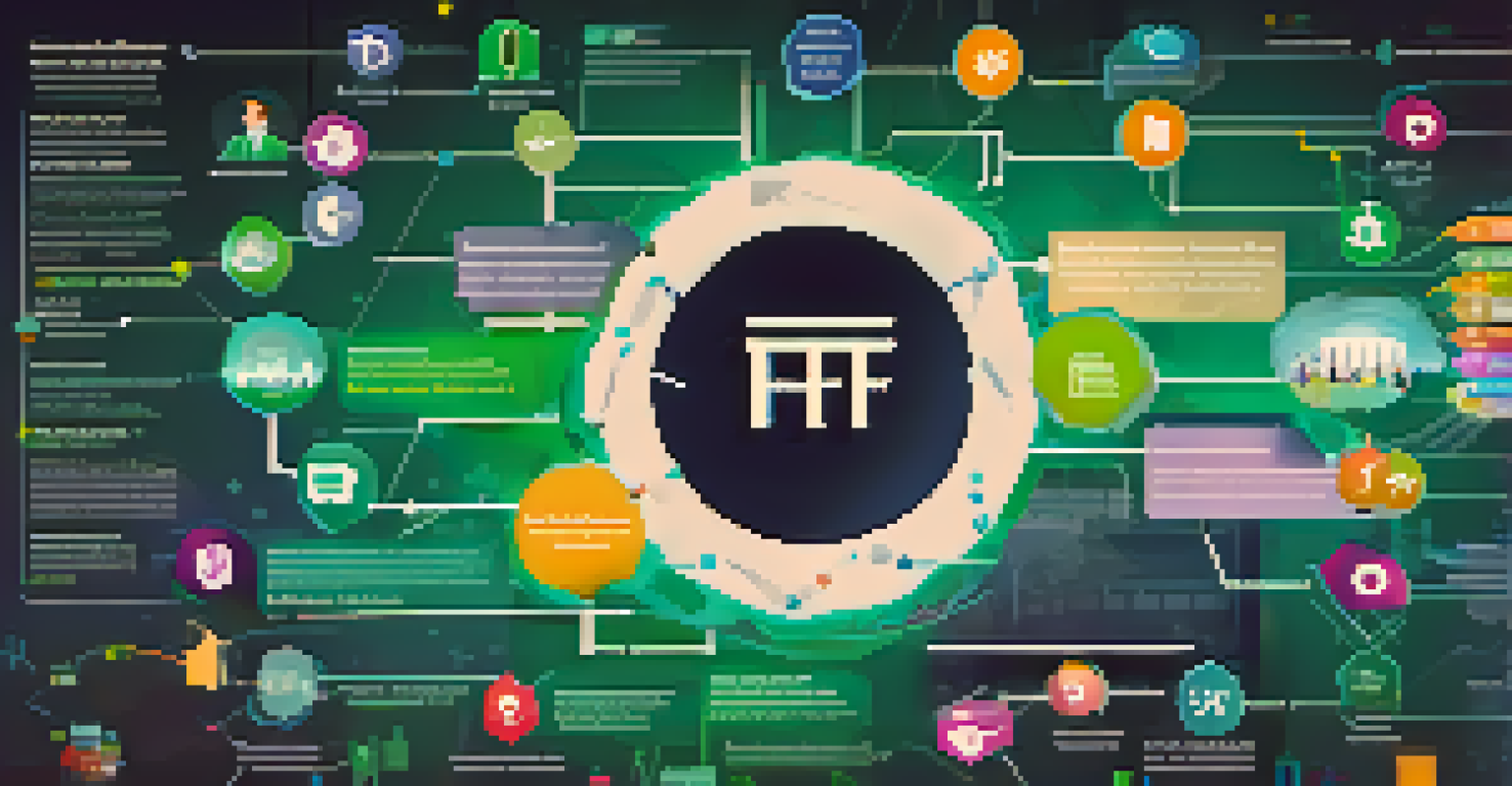How NFTs Are Revolutionizing Credential Verification in Education

Understanding NFTs and Their Role in Education
Non-fungible tokens, or NFTs, are unique digital assets verified on a blockchain. Unlike traditional currencies, which are interchangeable, NFTs represent ownership of a specific item or piece of content. In education, they can be used to authenticate credentials like diplomas and certificates, ensuring that these documents are secure and verifiable.
Blockchain technology provides a way to securely and transparently verify credentials, enhancing trust in the educational system.
Imagine a world where your diploma isn't just a piece of paper but a digital asset that you can easily share with employers and institutions. This would eliminate the risk of forgery and allow for instant verification. The concept is simple: if your credentials are stored on a blockchain, they are immutable and accessible from anywhere, making life easier for everyone involved.
As more educational institutions start adopting this technology, the potential for NFTs in credential verification becomes clearer. It's not just about securing documents; it's about streamlining processes and building trust in the educational system.
How NFTs Enhance Security and Reduce Fraud
One of the biggest challenges in education is the prevalence of credential fraud. Traditional methods of verification can be time-consuming and often unreliable. NFTs offer a solution by providing a secure, tamper-proof way to store and verify educational credentials on a blockchain.

Consider the impact of a verified NFT diploma: hiring managers can instantly check its authenticity without contacting the issuing institution. This not only saves time but also reduces the risk of hiring someone with falsified credentials. The unique nature of NFTs makes it nearly impossible to replicate or alter, providing peace of mind for employers and educational institutions alike.
NFTs Secure Educational Credentials
NFTs provide a tamper-proof way to verify educational credentials, enhancing security and reducing fraud.
As we see more institutions embrace this technology, the ability to verify educational credentials will become faster and more efficient. This shift could lead to a significant decrease in fraudulent claims and increase the overall integrity of educational achievements.
Streamlining the Credential Verification Process
The traditional process of verifying educational credentials can be cumbersome, involving phone calls, emails, and sometimes weeks of waiting. With NFTs, this process is streamlined significantly. Institutions can issue digital credentials directly to students as NFTs, which can then be shared easily with potential employers.
The future of education will be defined by how we harness technology to empower students and verify their achievements.
Imagine a recent graduate applying for jobs who can send a link to their NFT diploma instead of waiting for a physical copy to arrive. This instant access means that employers can review qualifications immediately, speeding up the hiring process. In a competitive job market, this could give job seekers a vital edge over others who have to navigate the old verification methods.
By adopting NFT technology, educational institutions not only improve efficiency but also enhance the overall experience for students and employers. The future of education and employment could very well hinge on this innovative approach.
Empowering Students with Ownership of Their Credentials
One of the most exciting aspects of NFTs in education is the empowerment they provide to students. With NFTs, graduates own their credentials, meaning they can control how and when they share them. This ownership fosters a sense of pride and responsibility in one's accomplishments.
Think about how this contrasts with traditional systems, where students often feel like they have little control over their documents. With NFTs, they can easily showcase their qualifications on professional networking sites or share them directly with employers, all while maintaining the integrity of their data.
Streamlined Verification Process
By using NFTs, educational institutions can expedite the credential verification process, saving time for both students and employers.
This shift not only enhances the personal branding of graduates but also encourages lifelong learning. As students accumulate more credentials over time, they can build a robust digital portfolio that reflects their capabilities and achievements.
Bridging the Gap Between Education and Employment
The relationship between education and employment is evolving rapidly. Employers are increasingly looking for ways to verify candidates' qualifications quickly and accurately. NFTs serve as a bridge between these two worlds, providing a reliable means of credential verification.
For instance, a tech company might want to ensure that a candidate truly possesses the coding skills they claim to have. With NFTs, the candidate can provide a digital badge or certificate directly linked to their educational institution, allowing for immediate verification. This builds trust and transparency in the hiring process.
As more organizations recognize the value of NFT credentials, we might see a shift in how hiring decisions are made. Employers will likely place greater emphasis on skills and verified qualifications, enhancing the overall quality of the workforce.
Challenges and Considerations in Implementing NFTs
Despite the many benefits, the implementation of NFTs in education isn't without challenges. Educational institutions will need to invest in the necessary technology and training to issue and manage NFTs effectively. Additionally, there may be concerns regarding privacy and data security that need to be addressed.
Consider the varying levels of technological readiness among institutions. While some may embrace the change wholeheartedly, others may struggle to integrate this new system. It's crucial for all stakeholders to engage in conversations about how to best approach this transition without leaving anyone behind.
Empowering Students with Ownership
NFTs allow graduates to own and control their credentials, fostering pride and facilitating easy sharing with potential employers.
Furthermore, legal frameworks governing digital assets are still evolving. Institutions must stay informed about regulations surrounding NFTs to ensure compliance and protect both their students and their reputations.
The Future of Credential Verification with NFTs
Looking ahead, the future of credential verification in education seems bright with the integration of NFTs. As technology continues to advance, we can expect more institutions to adopt blockchain solutions, leading to a more secure and efficient educational landscape. This could potentially transform how we perceive and validate learning.
Imagine a world where every educational experience—be it a formal degree, a short course, or a certification—can be easily verified and shared. This would not only enhance the credibility of educational achievements but also encourage a culture of continuous learning and improvement.

As we navigate this exciting frontier, collaboration among educational institutions, employers, and technology providers will be key. Together, they can shape a future where credentials are universally recognized, trusted, and valued.